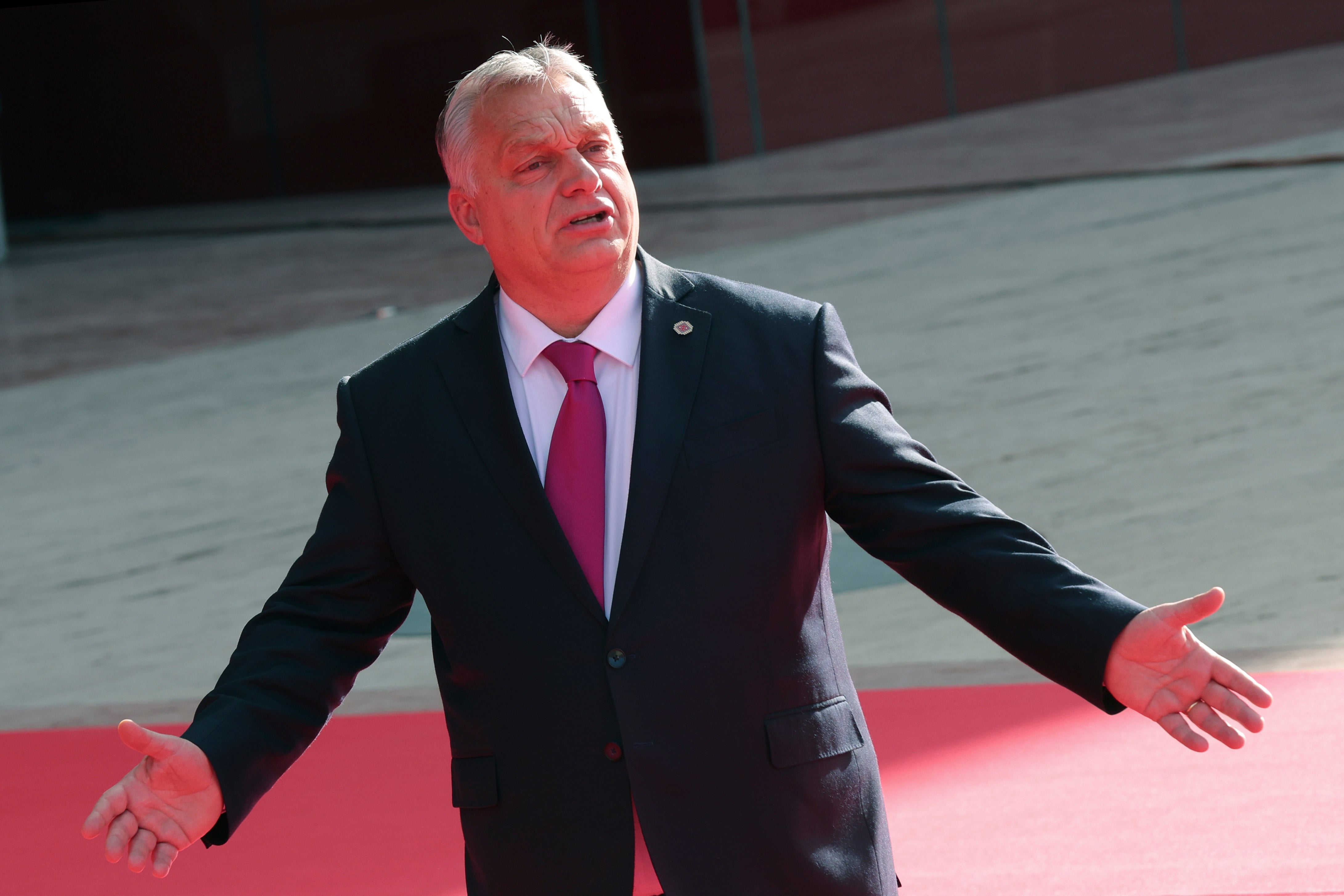Orban’s Hungary vetoes crucial European aid package for Ukraine
The aid package was worth more than £15 billion

A rift between the European Union and member state Hungary has deepened after Budapest vetoed an 18 billion euro (£15.4 billion) financial aid package to Ukraine.
The move exacerbates a dispute over the rule of law in the country and Prime Minister Viktor Orban’s outlook over Russia’s invasion of Ukraine.
Mr Orban is seen as an ally of the Russian leader Vladimir Putin.
EU finance ministers also postponed any decision to punish Hungary by withholding billions of euro for failing to implement solid rule-of-law reforms.
Instead of ensuring unanimous support for aid to Ukraine, Hungary’s veto made sure that the EU’s other 26 member states would need to work out a more complicated technical plan to make sure aid can keep flowing to Kyiv in the new year.
Tuomas Saarenheimo, the chairman of the EU Council Economic and Financial Committee, said: “In the end agreement was found on formulations that allow a flexible and quick way to deploy funds to Ukraine without fundamentally changing the way the EU manages its funds. I say ‘agreement’, but in the reality that agreement was minus one.”
Many nations see Mr Orban’s evasive tactics as a thinly veiled attempt to blackmail the EU into releasing billions in regular funding and pandemic recovery cash that has been held up.
The EU’s 27 nations have until December 19 to make a decision, and EU leaders meet for a two-day summit next week, increasing chances that the issues would still need to be grappled with at a later date.
EU nations have been mulling for years now whether to punish Mr Orban for what he calls his brand of “illiberal democracy” but what is seen by many others as being unfit for the EU’s traditional sense of Western democratic liberalism.
On top of that, Mr Orban has also angered the bloc’s officials with his repeated criticism of EU sanctions targeting Russia for its war in Ukraine.
The EU’s executive branch proposed that the bloc suspend around 7.5 billion euro (£6.4 billion) in regular funding to Hungary over concerns about democratic backsliding and the possible mismanagement of EU money.
Join our commenting forum
Join thought-provoking conversations, follow other Independent readers and see their replies
Comments
Bookmark popover
Removed from bookmarks